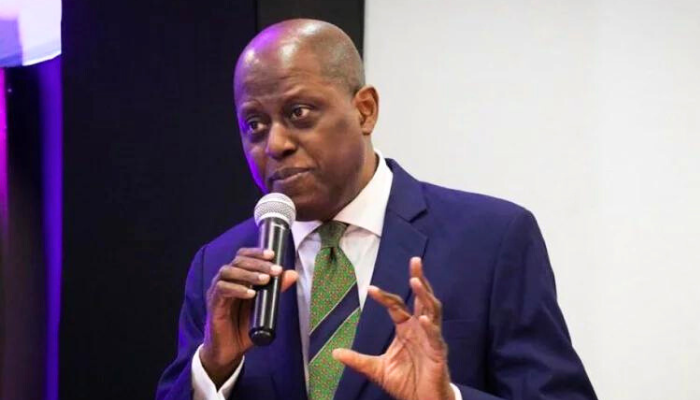CBN directive on excess FX assets ‘ll reduce scarcity – Expert
A former head, Investor Relations at UBA Plc, Razaaq Abiola, has backed the new policy of the Central Bank of Nigeria targeted at managing the current forex crisis in the country. According to him, the banks are taking advantage of the Naira weakness to build long foreign currency position as they are keeping more foreign […]

Olayemi Cardoso, CBN Governor
A former head, Investor Relations at UBA Plc, Razaaq Abiola, has backed the new policy of the Central Bank of Nigeria targeted at managing the current forex crisis in the country.
According to him, the banks are taking advantage of the Naira weakness to build long foreign currency position as they are keeping more foreign currency assets than their foreign currency liabilities which is why they are reporting unprecedented foreign currency gains.
The CBN had on Wednesday issued stringent lending requirements for commercial banks in a circular addressed to all banks and signed by the apex bank’s Director of Trade and Exchange, Hassan Mahmud, and the Director of Banking Supervision, Rita Sike.
The measures include restrictions on the overall foreign currency assets and liabilities and instructions for banks not to exceed 20 per cent short or 0 per cent long of shareholders’ funds unimpaired by losses using the Gross Aggregate Method.
The CBN said banks found to exceed these limits are mandated to rectify their positions by February 1.
It added that Non-compliance with the NOP limit will result in immediate sanctions and suspension from participating in the foreign exchange market, the apex bank said.
Reacting to the development, Abiola said, “With this new rule, any Bank that has more foreign currency assets than liabilities would have to sell the excess foreign currency position to the market or the CBN. This would increase the supply of foreign currency to the market and moderate the demand/supply gap.
“Whilst the effect of this policy on the Naira would be one-off and transitory, it should help calm the pressure in the market and stabilize the Naira over the next few days, especially if the CBN follows through the policy with strong oversight to avoid infractions or disguised compliance.”
